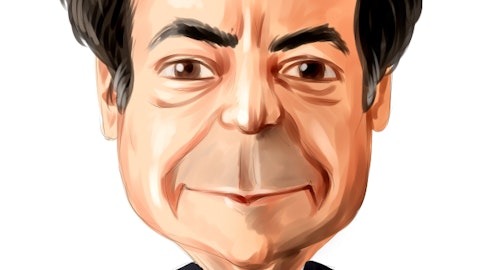
The most recent quarterly report, for the fiscal quarter ending in August 2012, showed a 32% growth rate in revenue compared to the same period in the previous fiscal year. With margins increasing as well, earnings were up at an even higher rate. The operating results were also impressive: physical locations decreased, but student enrollment was up 25% (which also indicates that revenue per student was up slightly). In addition, TAL Education Group reported over $200 million in cash on its balance sheet, meaning that a substantial portion of its market cap is in the form of cash.
While the growth rate is high, TAL’s income remains fairly low in relation to its current valuation, even if we strip out the cash. The stock trades at 23 times trailing earnings, and the enterprise value is 11.5 times trailing EBITDA. Certainly TAL Education Group is a growth company, and Wall Street analysts expect strong earnings growth over the next several years (the five-year PEG ratio is 0.7), but it’s interesting that the company doesn’t carry as much of a “China discount” as some other stocks; investors in Chinese-oriented stocks have been worried about weaker macro numbers, as well as the fact that some companies have been found to be reporting false financial data.
New Oriental Education & Tech Grp (NYSE:EDU) is the closest peer for the company. New Oriental has also been posting decent numbers, but the stock price is down 28% in the last year as it has been accused of accounting fraud. Its trailing P/E is 20, even though in its most recent quarter earnings were only 6% higher than a year earlier (the company did see revenue growth closer to that of TAL). Two other Tiger Cub funds are major investors in the stock. Discovery Capital Management, managed by Rob Citrone, more than doubled the size of its position in the third quarter to a total of 2.9 million shares (check out more stocks Citrone was buying); Robert Karr’s Joho Capital trimmed its stake but still owned 3.2 million shares. While New Oriental is a significantly larger company in terms of market cap, at a valuation of $2.7 billion, it’s a bit surprising to see the gap between these two stocks be so narrow. TAL would probably have to be overstating its income to a greater degree than New Oriental (if that’s even the case) to be trading at such a low premium despite substantially better growth numbers.
Of course, private American education companies haven’t been doing well recently either. Apollo Group Inc (NASDAQ:APOL), DeVry Inc. (NYSE:DV), ITT Educational Services, Inc. (NYSE:ESI), and Corinthian Colleges Inc (NASDAQ:COCO) are all down from their levels a year ago. Corinthian has fallen 7%, DeVry is down 24%, and the other two stocks have lost over half of their value. Corinthian’s business is more or less stable, but the other three companies all reported earnings declines in the 35-50% range last quarter compared to a year ago. In terms of forward earnings estimates, all of these stocks trade at a discount to the Chinese companies (of course, the American for-profit education business likely faces restrictions on federal education funding that currently drives much of their revenue).
We’re a bit worried that Tiger Global is reducing its position, and there’s no way for most investors to perform due diligence on TAL’s financials. As a result, even though it could be promising given its promisingly low multiple relative to New Oriental we would advise staying out of the stock.





